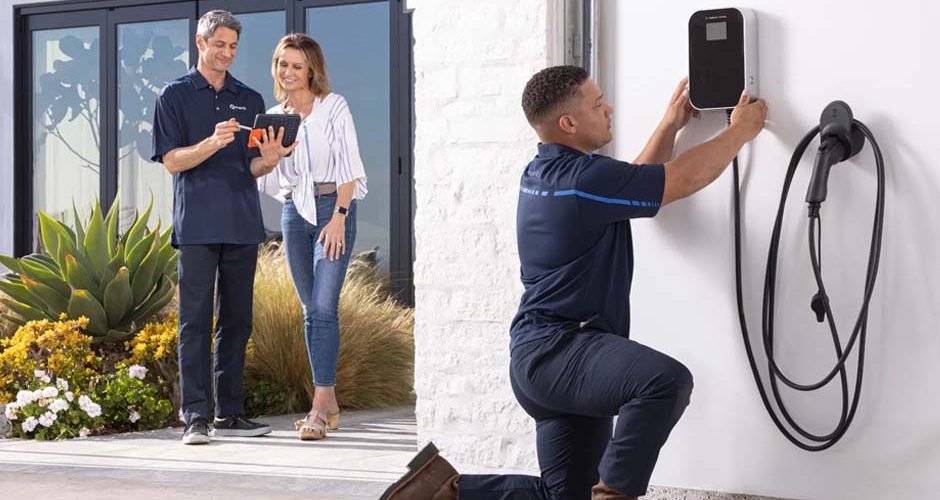As of 2023, there are over 2.5 million electric vehicles in the US. In contrast, there were about 12,000 such vehicles in 2011. Also, the number of electric vehicles sold in 2021 in the US nearly doubled from the previous year, up from 308,000 to 608,000, the US Department of Energy reports. Based on these stats, it’s clear the demand for electric vehicles is on the rise.
As a result, the need for appropriate charging infrastructure also increases. On account of this, if you’re looking for an EV charger McKinney installer with a reputation for quality and professionalism, consider partnering with Blue Line Electric – a front-runner in the industry. The firm’s experts install high-powered EV chargers and have experience with charging units from all the major brands.
Well then, how do you pick the right installer as a homeowner or business owner? The following pointers from the pros at Blue Line Electric might simplify your task.
Table of Contents
1. Get Recommendations
Does anyone in your circle own an electric vehicle? This could be a colleague, neighbor, family member, friend, or acquaintance.
You’d be surprised to know how generous they can be when you ask for their opinion and advice. Find out who they engaged in installing their EV charger and whether they were satisfied with the outcome.
If so, they can point you in the right direction or help you dodge a bullet. All the same, seek recommendations from people you trust and note that your experience with their preferred installer might not replicate theirs, which leads us to the next point.
2. Do Your Research
You can also gather information single-handedly if you don’t mind doing some digging. To this end, your favorite browser might come in handy. Simply type relevant keywords, and you’ll find a list of installers in your area.
While at it, read customer reviews and visit their websites. If a particular contractor has positive feedback aplenty (specifically on third-party sites), you’re probably on track to finding a good apple.
But if they don’t have an online presence or appear dodgy, steer clear. Generally, customer testimonials are like a window into the service, providing a feel for a particular contractor.
3. Experience
While proper training is essential, experience is irreplaceable. Generally, electrical work requires a particular level of expertise – the installer should fully understand your property’s electrical system and chargers. Otherwise, they can jeopardize your safety or compromise your charger’s performance if they botch the installation. To this end, here’re the potential questions you can use to narrow down your choices:
- How long have you been in business?
- How many high-voltage chargers have you installed?
- What kind of warranty do you provide?
- Who’ll be responsible for the installation?
4. Check For Compliance and Certification
Insurance is a vital aspect to bear in mind when selecting an EV charging installation service. Contractors typically carry liability insurance of up to $1 million or higher, which covers accident-related damages at work sites.
Qualified EV charger installers should also have certifications to show their competence in the field. Check your contractor’s credentials – licenses and certificates before hiring them.
It’s also advisable to make further inquiries. For instance, find out whether they’re certified by the EV industry’s top regulators. Likewise, is their insurance valid? Don’t simply take their word for it – put on your detective’s hat and do your due diligence.
5. Compare Quotes
Installation costs tend to vary from one installer to another. Therefore, get bids from several contractors before taking your pick. As you do so, fill them in on your project scope to make your comparison shopping more accurate. This way, you can gauge the market rates for EV charger installation and hopefully score a good deal.
Likewise, ask the contractors to break down the costs into materials and labor charges. This provides a better idea of how much each item costs and can help you decide if the quote is within your budget. Also, opt for service providers who charge a flat rate to avoid tacked-on fees or surprises.
6. Document Everything
After settling on a charging station installer, put pen to paper – sign a contract that outlines the job description, price, payment terms, expected timeframe, and other nitty-gritty details. Such paperwork protects you and the contractor if an issue arises.
It’s also worth inquiring about post-installation support, such as maintenance and repairs. After all, you don’t want to return to the drawing board whenever you need assistance.
Don’t simply hire the installer who claims to be the cream of the crop. Verify or double-check the information they provide. Also, note that price isn’t the best determinant of quality. Hence, while an experienced installer may charge more than an upcoming contractor, their input can be invaluable when safety and quality are top of mind.





